A couple of days ago, the temperature was around 20°C. I woke up this morning to see it is snowing outside. I guess the temperature at my place is dropping as fast as crypto is. There is, however, one thing that makes any morning just a bit better. It is a cup of hot black coffee. Liquid love. There were times when I had to drink tea instead of coffee and while it was nice, it just wasn't what it needed to be. Something was missing. I guess I am a coffee person and tea just won't do the job for me. How about you? What do you prefer, coffee or tea?
When it comes to choosing our morning beverage, we all have our preferences with known or unknown reasons behind them. Today we will take a little journey together and learn something about them and even see what science has to say about the topic. Spoiler alert: the answer just may be in your DNA...
A coffee tree can grow to more than 9 meters high and each tree is covered with green leaves growing opposite each other in pairs with coffee cherries along the branches. You can see flowers, green and ripe fruit all at the same time because it grows in a continuous cycle. The tree can live up to 100 years but is the most productive between the ages of 7 and 20 when it produces 2 pounds of green beans. This tree likes mild temperatures, shaded sun, frequent rain, and rich soil so we have a so-called Coffee Belt that is in the Equatorial zone located between latitudes 25 degrees North and 30 degrees South.
Experts estimate that there are from 25 to 100 species of coffee plants and the genus was first described in the 18th century by the Swedish botanist, Carolus Linneaus. Botanists still disagree on the exact classification since coffee plants range widely from small shrubs to tall trees and are even different in color but to a coffee consumer, there are two important coffee species; Arabica and Robusta. Either one of those can be used to make mine (maybe yours) favorite drink that is made by brewing the beans which are actually roasted seeds of the fruit called coffee cherry. In 95% of cherries, there are two beans but there is a natural mutation in 5% of them where there is only one seed present (called peaberry). Those individual seeds are sometimes manually sorted out for a special sale since some people believe they are sweeter and more flavorful than standard beans.
Every coffee bean has a unique blend of organic compounds such as carbohydrates, amino acids, fiber, pectin, minerals, antioxidants, and caffeine that are naturally occurring but there are approximately 1000 compounds that are formed during brewing. Some of them are strong antioxidants (chemicals that fight free radicals and protect cells from damage) including chlorogenic acids (CGA) which is beneficial in modulating sugar metabolism, controlling blood pressure, and possibly defending against heart disease and cancer. One cup may contain 70 – 350 mg of it.
Difference bewteen Arabica and Robusta
| . | Arabica | Robusta |
|---|
| %of world market | 70% | 30% |
| Bean | flatter and more elongated | rounder and smaller |
| Tree | 610 to 1830 meters high, a heavy frost will kill them, costly to cultivate | heartier and more resistant to disease and parasites, cheaper to cultivate, able to withstand warmer climates |
| Caffeine | lower in coffeine | 50-60% more caffeine |
| Area | Yemen, Africa, Latin America, Southeast Asia, China | Central and Western Africa, Indonesia and Vietnam, Brazil, lower altitudes than Arabica |
History dates back to the 15th century
While there are a lot of myths about coffee originating from Ethiopia (one is about a 9th century Ethiopian goat-herder Kaldi), there is no solid evidence to support them. The earliest evidence of coffee drinking is from the early 15th century, in the Sufi monasteries of Yemen. By the 16th century, it had reached the rest of the Middle East, South India, Persia, Turkey, Horn of Africa, and northern Africa. Then it spread to the Balkans, Italy and to the rest of Europe. At the end of her journey, it came to South East Asia and finally to America. The word coffee originates from the Arabic qahwah that originally meant wine. They used the beverage as an aid to concentration and as a kind of spiritual intoxication.


When it comes to scientific research, I am constantly surprised by how much research has been done on things that we enjoy. This makes me really happy because research on food, sex, sleep, fun, and beverages comes up with new and interesting findings with almost every day. Coffee is no different. There have been many papers published and almost entire scientific community agrees that coffee has great benefits for our health. U.S. Dietary Guidelines even recommends coffee as part of a healthy lifestyle.
From liver health to living longer...
The strongest associations to coffee consumption include benefits regarding cancer, longevity, cardiovascular disease, liver health, diabetes, and stroke. It all started back in 1980 when Norwegian researchers reported that coffee seemed to fend off liver disease. Ever since then, coffee was the inspiration for many investigations. U.S. researchers reported in 2012. (and later studies in Japan, Scotland, and Finland confirmed) how people who drink two or more cups of coffee a day live longer than those who don’t, after accounting for behavioral differences. You can read the entire research, in which 402260 people participated, here:
Association of Coffee Drinking with Total and Cause-Specific Mortality by Neal D. Freedman, Ph.D., Yikyung Park, Sc.D., Christian C. Abnet, Ph.D., Albert R. Hollenbeck, Ph.D., and Rashmi Sinha, Ph.D.
For many people, coffee still has a bad reputation especially when it comes to talking about stomach ulcers, acid reflux and the heart flutter known as atrial fibrillation. The interesting thing is that these things are not present in large population studies. Read about interesting findings here:
No Association of Coffee Consumption with Gastric Ulcer, Duodenal Ulcer, Reflux Esophagitis, and Non-Erosive Reflux Disease: A Cross-Sectional Study of 8,013 Healthy Subjects in Japan by Takeshi Shimamoto, Nobutake Yamamichi , Shinya Kodashima, Yu Takahashi, Mitsuhiro Fujishiro, Masashi Oka, Toru Mitsushima, Kazuhiko Koike
Results of that study showed how there is no noticeable association between the degree of coffee consumption and upper-gastrointestinal disorders. It also showed no significant association with gastric ulcer, duodenal ulcer, non-erosive reflux disease or reflux esophagitis.
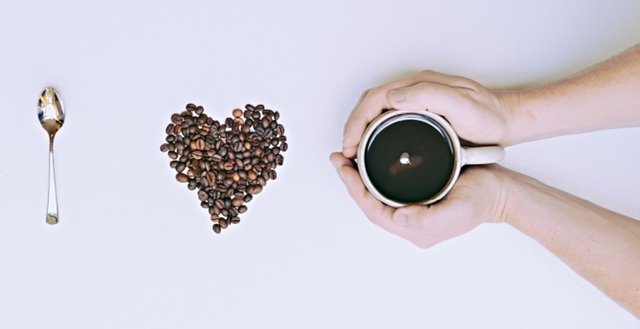
CC0 image, Pixabay, author: stokpic
As I have already mentioned, there are many studies on this topic, here are those that I have found the most interesting and recommend you take a look at...
Post-menopausal breast cancer: Coffee Intake Decreases Risk of Postmenopausal Breast Cancer: A Dose-Response Meta-Analysis on Prospective Cohort Studies
Parkinson’s: Caffeine Intake, Smoking, and Risk of Parkinson Disease in Men and Women
Colon cancer in women: Coffee drinking and colorectal cancer and its subsites: A pooled analysis of 8 cohort studies in Japan
Depression: Coffee, caffeine, and risk of depression among women
Liver cancer: Protective effects of coffee consumption following liver transplantation for hepatocellular carcinoma
Blood pressure: The effect of coffee on blood pressure and cardiovascular disease in hypertensive individuals: a systematic review and meta-analysis
Diabetes: Coffee components inhibit amyloid formation of human islet amyloid polypeptide in vitro: possible link between coffee consumption and diabetes mellitus
Stroke: Coffee Consumption and Risk of Stroke in Women
Longevity: Association of Coffee Drinking With Mortality by Genetic Variation in Caffeine Metabolism: Findings From the UK Biobank


When it comes to the variety of coffee and coffee-like beverages, your choice may seem hard. You can choose between espresso, cappuccino, mocha, home-made, decaf, flavored and so on. My favorite one is home-made, black with no sugar or milk, just plain coffee that needs to be strong. According to research, my preference is due to the passiveness of my PDSS2 gene because the more active the gene, the less coffee people drink.
Genetic makeup controling coffee consumption...
In 2016, researchers tracked the coffee-drinking habits of people from Italy and the Netherlands and found how the activity of a gene that lowers levels of caffeine-degrading enzymes in the liver is associated with the amount of coffee people drink. PDSS2 limits low-level caffeine intake but there is also CYP1A2 that controls coffee consumption habits at higher caffeine doses. Oh and, you would be be wrong to presume how Italians drink more coffee than Dutch people. Dutch, on average, drink more than five cups of filtered coffee per day while Italians drink about two cups of espresso and since Dutch are enjoying their coffee in larger cups, they consume about three times as much caffeine per cup as the Italians do. You can read the full report here:
Non-additive genome-wide association scan reveals a new gene associated with habitual coffee consumption by Nicola Pirastu, Maarten Kooyman, Antonietta Robino, Ashley van der Spek, Luciano Navarini, Najaf Amin, Lennart C. Karssen, Cornelia M Van Duijn & Paolo Gasparini


Just a couple of days ago, November 15th to be exact, we got some new information about why some people prefer tea and others, like me, choose coffee instead. Researchers have found that people with a version of a gene that increases sensitivity to the bitter flavor of caffeine are coffee drinkers. The more sensitive we are to that flavor, the bigger the chance is we would crave it. Those that are less sensitive to caffeine’s bitter taste, are tea drinkers but still have other genes that increase sensitivity to the bitterness of other chemicals.
Caffeine, quinine, and other chemicals...
Researchers in Australia, the United States, and England examined more than 400,000 DNA sample variants of genes involved in detecting the bitter taste of the caffeine, quinine, and propylthiouracil (PROP). They compared that data with the information on how much coffee or tea people are drinking daily. For long we had an opinion on how people who are genetically inclined to taste bitter more intensely might avoid bitter beverages, turns out that could not be further from the truth. People who had the highest genetic score for detecting caffeine’s bitterness were 20 percent more likely to be heavy coffee drinkers than those without the increased sensitivity.
You can read the full report here:
Understanding the role of bitter taste perception in coffee, tea and alcohol consumption through Mendelian randomization by Jue-Sheng Ong, Daniel Liang-Dar Hwang, Victor W. Zhong, Jiyuan An, Puya Gharahkhani, Paul A. S. Breslin, Margaret J. Wright, Deborah A. Lawlor, John Whitfield, Stuart MacGregor, Nicholas G. Martin & Marilyn C. Cornelis
So... What kind of genes do you have? Are you enjoying your coffee or do you prefer drinking tea instead? What is your favorite type? Coffee has always been a great companion of mine and while I tend to drink it black, I do enjoy chocolate flavored ice-coffee in the summer and there is something special in that Irish coffee that makes my smile just a bit bigger.
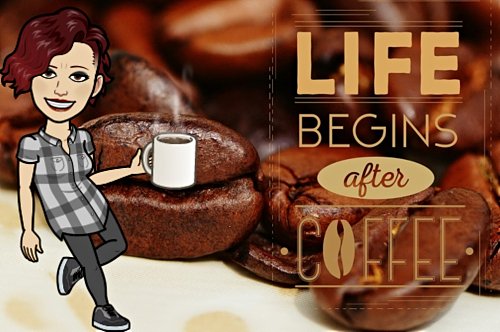
CC0 image, Pixabay, author: Alexas_Fotos, adapted by me
To read more about this topic, check out these REFERENCES:
Antioxidants in Coffee from coffeechemistry.com
Coffee Chemistry: Inside A Complex Little Bean from coffeeandme.org
Coffee Around the World from ncausa.org
Nutrition In Coffee from coffeeandme.org
Unlocking Coffee's Chemical Composition: Part 2 from coffeechemistry.com
History of coffee from wikipedia
What is coffee from ncausa.org
Coffee reveals itself as an unlikely elixir from sciencenews.org
Coffee, Caffeine & Health from ncausa.org
Thank (or blame) your genes for ability to handle java jolt from sciencenews.org
Coffee or tea? Your preference may be written in your DNA from sciencenews.org


Image sources AND LICENCES in order of appearance:
- all images used in this post are free for commercial use, they are royalty free with the links to original images provided under them
- line divider that I use is from FREE CLIPART LIBRARY, and is here
- title pictures are made by me using the CC0 images from pixabay that can be found here and here
- my bitmoji avatar was created on https://www.bitmoji.com/, visit the site to create yourown
PROUD MEMBER OF:



@steemitbloggers

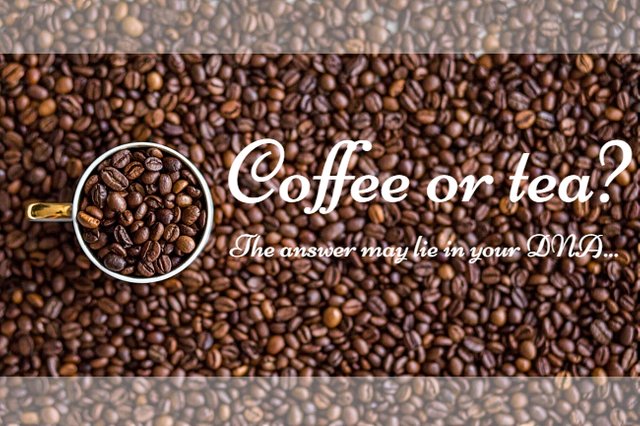
















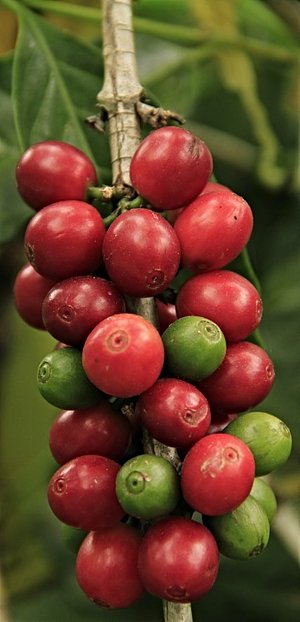
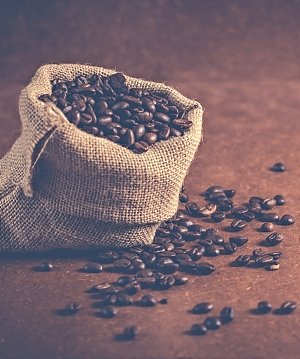
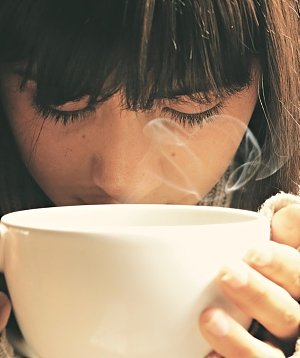
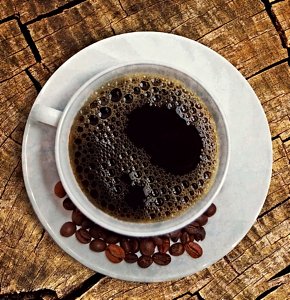
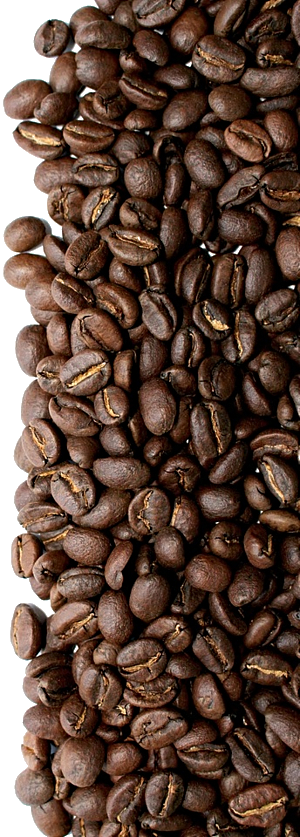

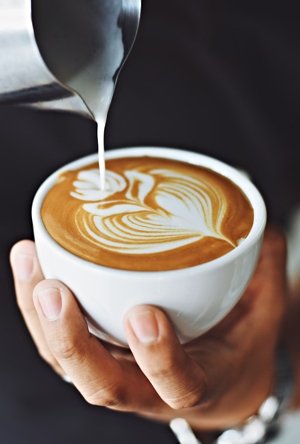
Coffee. Lots of it, strong and black. Except occasionally after a dinner out I will have coffee with cream as desert.
I also drink green tea cold in the afternoon, but might have a cup of coffee at any of the 24 hours. I owned and ran a coffee shop for three years, as much fun as I've had in my life. If only I could have made a living at it...
Thanks Petra. As always a first rate post!
You ran a coffee shop? WOW! That must have been really fun! I agree with you, coffee should be strong and black 💚
Oh, that gene is definitely passive in me! I can't utter a word in the morning until I've enjoyed my very strong, black coffee (with no sugar). I sometimes have two coffees a day, but never more than that or I'd be wired to the moon, due to the strength I like. And it has to be in a small cup. I must have some Italian DNA.
I sometimes have tea too, especially when out hillwalking. I find it quite refreshing, and gently reviving when you're tired. But coffee is my preference.
Weirdly, I went for two years when I lost the taste for coffee and tea. Maybe that gene suddenly became more active.
I like small cups, but only to look at hihi. They are very cute and adorable but I drink my coffee out of a cup that holds 2 dcL of liquid :)
Different strokes for different folks LOL! I've no idea why I prefer a small coffee cup, but I usually insist on it :)
Coffee
Your lovely fragrance beckons all with the rising of the sun.
Few can resist you, and I am certainly not one.
My quivering soul longs to partake of your flowing inspiration.
Oh, the agony of anticipation.
The stir, the sip, the bliss, my cup is full.
Sweet satisfaction with every last drop, it’s never without your pull.
Upon my joyful smile, you will remain
Reminding all, we will meet again.
I could not have wished for a better and sweeter comment that this one 💚
Bean not been
I am a Tea drinker, and a religious one at that. I think I have around 4-5 cups of tea per day, drinking a variety of types from white, through black, and even a bunch of herbal teas (I love chamomile). Coffee however, much to the chagrin of my coffee loving fiancee, I do not enjoy.
I don't know if I can taste the bitterness of caffeine or not. Never gave that any thought.
Lovely post!
Thanks for catching the typo :) I am glad you like the post, say hello and give your fiancee a hug from me, from one coffee lover to another :D
Ahhhh cool article @zen-art <3
I was a coffee drinker forever, and most jobs I held before working in veterinary medicine were at coffee shops, to help you see my live for coffee (and connecting with peoples). I notice that it makes my anxiety worse tho! So for the past several months I've been tea only. I drink a lot of yerba mate, which is higher in caffeine, and I find there isn't that huge boost then crash, the energizing quality of it is much smoother and more manageable for me. Also it's diuretic effects aren't as bad, at least for me, and since I'm horrid at drinking water, that's an important factor!
Thanks for sharing this. I wanna try this robusta blend!! Sounds good to me. Lol
Sharing with my hubby, he will enjoy this article.
Xx ToL
I am glad you enjoyed the read and hope your hubby does too. Coffee used to make my anxiety worse too and I was off from it for 2 years. Now I am happy beyond words that I can drink it again! 💚
Am I weird...I like both and mix the 2 during the day, one cup of coffee and then one cup of tea hehe!
You are crazy, completely bonkers but let me tell you a secret... All the best people are 💚
I like both. For me it's usually coffee in the morning, coffee or tea in the afternoon (though usually coffee) and tea at night. There's such a huge variety of teas that you can definitely find something you like. I think if I had to choose only one it would be coffee though.
I enjoy a cup of tea here and there, especially those made of flowers and herbs. I think mint is my favorite.
Mine is full of coffe and i bet the one of @ c0ff33a is full of coffee too ^^
@c0ff33a is either going to love me more after this post or hate me lol, we will see what it will be :)
I’ll leave a comment when I finish roasting all this coffee!
Coffee all the way. I recently tried a blend of 70% Arabica + 30% Robusta. It's good for reading and chillin. But for work, I usually prefer Robusta beans.
Coffee all the way indeed!

Absolutely fantastic post, as far as my knowledge goes (and I have been working in the coffee industry well over 22 years) full correct and comprehensive. I have to admit the latter part about DNA and chemicals is a bit over my head but the first part spot on.
The only comment I would add, is regarding Arabica vs Robusta coffee beans. Robusta is often seen as the "cheaper" alternative to Arabica, and people will often say they only want to buy Arabicas. In reality the reason Robusta is less expensive then Arabicas is it grows at much lower altitudes - making it much easier to cultivate and harvest - the reason it can do this is because it has a higher content of a natural pesticide that protects the Robusta trees from being damaged by insects - this natural protection is Caffeine - which makes Robusta coffee beans ideal for a brew to keep you awake. Often the coffee's marketed as Seriously Strong, Bullet Blend, Builders Coffee etc are a dark roasted Robusta giving bitterness kick from the dark roast and caffeine which the Robusta has a high percentage of.
Robusta is also very often found in the coffee blends used for brewing espresso - the base for a cappuccino, latte or flat white with the pretty poured art in. The reason for this is Robusta helps increase the the "crema" of an espresso - the creamy head on this pressure brewed coffee resulting from the extracted oils and flavonoids from within the finely ground coffee - and the crema is used for the pretty patterns you often see - as in this post a Tulip being poured above.
#thealliance #witness
Thank you for that lovely and educational addition to the post, I knew you had some info to contribute and I am glad you approve of the text 💚